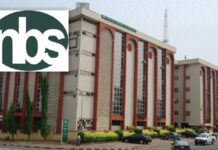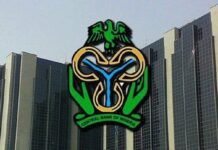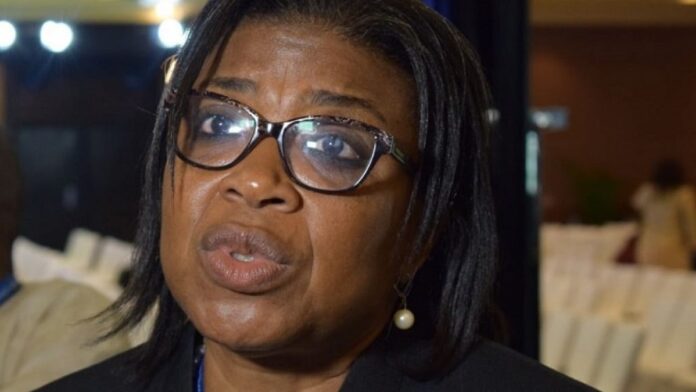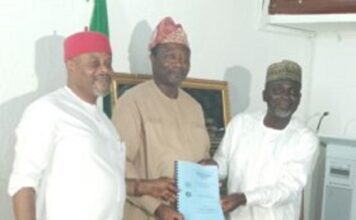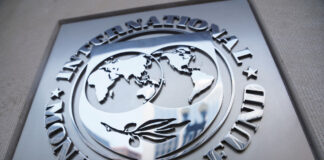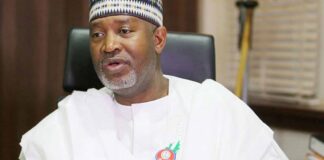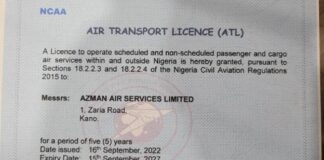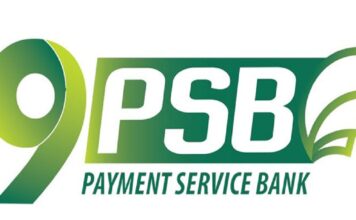Nigeria Pays N2.5 Trillion to Service Public Debts
Nigerian government paid total sum of N2.5 trillion to service total public debts in 2020 amidst pandemic-induced global disruption.
This sum was however split between local and foreign debt service payments at N1.556 trillion and N590 billion respectively, as the foreign portion is converted at official rate.
The Debt Management Office (DMO) recently said the Nigeria’s indebtedness has increased to N32.915 trillion at the end of 2020.
In a new report, DMO indicates that Federal Government expended $289,450,000 or N110 billion to service external debts between October and December.
It noted that actual payment made was split among key creditors including multilateral, bilateral; commercial and others.
Total sum of N1.854 trillion was expended to service domestic debts; of which about N1.5 trillion were interest payments on FGN Bonds.
In addition, total external debt service payment gulped $US1.556 billion; 54% of the sum was expended on commercial Eurobond interest payments.
Some 28% of this amount was allocated to service multilateral taken and 17% for bilateral loans.
Recalled DMO said Nigeria’s total public debt as at December 31, 2020 was N32.915 Trillion.
According to DMO, the figures include the debt stock of the Federal and State Governments, as well as, the Federal Capital Territory.
“It will be recalled that after Nigeria exited recession in 2017, the level of New Borrowing at the Federal Level as shown in the annual appropriation Acts, had been declining2, it added.
DMO said this occurred as part of the Government’s measures to moderate the rate of growth in the public debt stock in order to ensure debt sustainability.
It said new borrowing to part finance budget deficits had declined steadily from N2.36 Trillion in 2017 to: N2.01 Trillion in 2018, N1.61 Trillion in 2019 and N1.59 Trillion in the first 2020 appropriation Act.
Debt office explained that this trend was reversed in 2020 due to the economic and social impact of the COVID-19 Pandemic.
It noted that new borrowing in the revised 2020 appropriation Act was N4.20 Trillion.
“Many countries including the advanced countries also increased their level of borrowing as a result of COVID-19.
“It should be noted though, that apart from the new domestic borrowing of N2.3 trillion, the other new borrowings were concessional loans from the International Monetary Fund (USD3.34 Billion) and other multilateral and bilateral lenders”, DMO added.
It also added that this incremental borrowing to part-finance the 2020 Budget and the additional issuance of promissory notes to settle some arrears of the Federal Government of Nigeria, contributed to the increase in public debt stock.
“New domestic borrowings by State Governments also contributed to the growth in the public debt stock”, DMO explained.
Meanwhile, debt office said total public debt to gross domestic product as at December 31, 2020 was 21.61%.
It however consider this to be within Nigeria’s new limit of 40%, resulting from recent adjustment to fiscal responsibility act.
In addition, DMO believes the various initiatives of government to increase revenues such as the strategic revenue growth initiative and the Finance Act, 2020, should help shore up Government’s revenue and reduce the debt service to revenue ratio.
Recently, the Federal Executive Council (FEC) at its February, 2021 meeting approved a new medium-term debt management strategy for the period 2020-2023.
The Medium-Term Debt Management Strategy (MTDS) raised debt to gross domestic product to 40% as government plan to borrow half of its N5.6 trillion budget deficit via local borrowings.
DMO justified that the increased from 25% to 40% is in order to accommodate new borrowings to fund Budget Deficits and other obligations of Government; Promissory Notes to be issued to settle Government Arrears; and, the Ways and Means Advance at the Central Bank of Nigeria.
“This ratio is still well below the World Bank recommended threshold of 55% for countries in Nigeria’s peer group”, it stated.
The new plan which is currently implemented seeks to balance ratio of local and foreign borrowings at 70:30.
Policymakers said this is to further strengthen the domestic debt market and optimize access to both Concessional and Commercial sources of funding.
Nigeria redeemed 6.75% USD500 million JAN 2021 Eurobond which matures on January 28, 2021.
Naira Stands Firm as Potential COVID-19 Vaccine Raised Oil Price
However, government plan to raise sizeable amount to financial budget gap has started driving yield on fixed income securities up as government revenue stays low.
Nigeria Pays N2.5 Trillion to Service Public Debts
